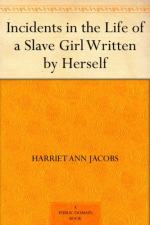Mrs. Bruce came to me and entreated me to leave the city the next morning. She said her house was watched, and it was possible that some clew to me might be obtained. I refused to take her advice. She pleaded with an earnest tenderness, that ought to have moved me; but I was in a bitter, disheartened mood. I was weary of flying from pillar to post. I had been chased during half my life, and it seemed as if the chase was never to end. There I sat, in that great city, guiltless of crime, yet not daring to worship God in any of the churches. I heard the bells ringing for afternoon service, and, with contemptuous sarcasm, I said, “Will the preachers take for their text, ’Proclaim liberty to the captive, and the opening of prison doors to them that are bound’? or will they preach from the text, ’Do unto others as ye would they should do unto you’?” Oppressed Poles and Hungarians could find a safe refuge in that city; John Mitchell was free to proclaim in the City Hall his desire for “a plantation well stocked with slaves;” but there I sat, an oppressed American, not daring to show my face. God forgive the black and bitter thoughts I indulged on that Sabbath day! The Scripture says, “Oppression makes even a wise man mad;” and I was not wise.
I had been told that Mr. Dodge said his wife had never signed away her right to my children, and if he could not get me, he would take them. This it was, more than any thing else, that roused such a tempest in my soul. Benjamin was with his uncle William in California, but my innocent young daughter had come to spend a vacation with me. I thought of what I had suffered in slavery at her age, and my heart was like a tiger’s when a hunter tries to seize her young.
Dear Mrs. Bruce! I seem to see the expression of her face, as she turned away discouraged by my obstinate mood. Finding her expostulations unavailing, she sent Ellen to entreat me. When ten o’clock in the evening arrived and Ellen had not returned, this watchful and unwearied friend became anxious. She came to us in a carriage, bringing a well-filled trunk for my journey—trusting that by this time I would listen to reason. I yielded to her, as I ought to have done before.
The next day, baby and I set out in a heavy snow storm, bound for New England again. I received letters from the City of Iniquity, addressed to me under an assumed name. In a few days one came from Mrs. Bruce, informing me that my new master was still searching for me, and that she intended to put an end to this persecution by buying my freedom. I felt grateful for the kindness that prompted this offer, but the idea was not so pleasant to me as might have been expected. The more my mind had become enlightened, the more difficult it was for me to consider myself an article of property; and to pay money to those who had so grievously oppressed me seemed like taking from my sufferings the glory of triumph. I wrote to Mrs. Bruce, thanking her, but saying that being sold from one owner to another seemed too much like slavery; that such a great obligation could not be easily cancelled; and that I preferred to go to my brother in California.




